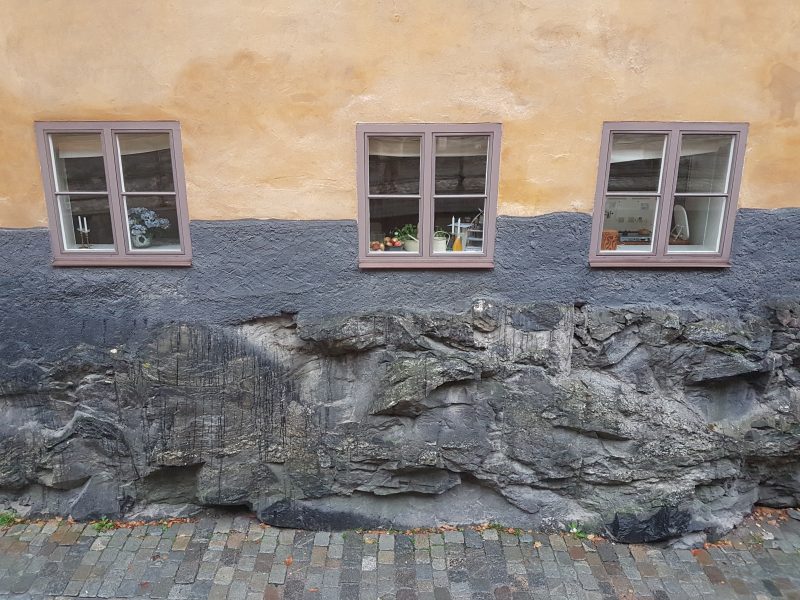Do you ever wonder how people develop their preferences and eccentricities? The criteria for places I would consider living is both simple and strict and likely contrasts the exact place I was born and raised: Los Angeles, undoubtedly one of the worst metropoles in the US. A city that never ends, sprawling beyond county lines, with no transportation infrastructure to support its car-based culture. From my childhood in southern California, I learned that I didn’t want to live in a super metropolis; that probably, a reasonably-large city would fulfil all my needs. Thus, the 1st requirement for relocation in the European Union was a city with a population between 400,000 and 2 million people (we will ignore the question of city, urban, and metro populations for the time being).
After having moved from LA to Flagstaff, back to LA, then to Minneapolis, finally to Europe, Bristol to Reading, back to Bristol, then to Fukuoka, and am finally moving back to Europe, I’m about done moving around. Having to start over all the time with no friends is a bit exhausting. I’m hoping to stay in this next place for good. With this intent in mind, I am planning on retiring shortly before 65 and going back to university to study fine art and everything else I might not have had time for. The 2nd requirement is to find a city that has a sufficient number of English-based degrees in the fields of fine art, fashion, film, business, political science, psychology, leisure studies, and philosophy.

Country shortlist and anticipated winner
These were the only two requirements, though I probably cherry-picked the countries a bit to ultimately create this list:
- Belgium
- Czech Republic: Prague only
- Denmark
- Estonia: Tallinn only
- France
- Germany
- Ireland: Dublin only
- The Netherlands
- Portugal: Lisbon only
- Spain: Valencia only
- Sweden
- Switzerland
Countries that have only one candidate city are annotated. For example, while I’ve been to Madrid and people absolutely adore Barcelona, I had concerns that both of these Spanish cities were simply too big for my taste.
At this point, I needed to find all the English degrees by city, not by school. Most students will have a specialisation their interested in and can search for the relevant tier of school they think they will be accepted to. Other students may decide they want to study in a specific country and can begin shortlisting schools from there. Since my task was a bit unusual, there was very little data for me to utilise.
As I started researching methods of sourcing the data I needed, this interactive map of English degrees worldwide
came up in my exhaustive search. Since the article focuses on “top” universities, the underlying data can be a bit skewed, but it resulted in two hypotheses about degrees taught in English outside of English-native countries:
- Germany has the most universities that teach in English.
- The Netherlands has the most English degrees per capita…
And I really thought I would end up in The Netherlands, probably Rotterdam, or maybe Munich or Hamburg if I ended up in Germany. Although Berlin was on the list because of its international significance as the probable cultural capital of Europe, it was probably a bit too big for me. That was before the gruelling research.
Winning contestants: Best cities to study in English in Europe
- Dublin, Ireland: Apparently, everyone but me knew that Ireland mostly speaks English, it being one of the official languages. Ireland is also the likely default Brexit destination for most Europeans.
- Copenhagen, Denmark: My favourite holiday destination in Europe. Have only been once, but enjoyed it even more than Paris. In fact, Copenhagen is the only candidate on the list that I’ve actually visited before.
- Stockholm, Sweden: Didn’t really know much about Sweden. I’m not really attracted to blonde women, so when visiting Malmo and Uppsala, I thought I probably couldn’t move here, despite all the exciting political motivators.
- Tallinn, Estonia: The most innovative and digitally advanced country in the world.
While The Netherlands and Germany certainly offer more English-based courses overall, Copenhagen, Stockholm, and Tallinn are the true centres of English universities outside of English native countries. For example, if you enter a program in Stockholm and decide that it isn’t quite right, you will probably be able to find an alternative from the 9 universities in the city that offer degrees taught in English, out of the at least 15 universities there; this situation is less easily addressed if you go to Rotterdam, which as an example only has 3 universities.
Academic decisions, bookings, and revelatory news
From Kyushu, I booked the flights for my Brexit relocation tour, which included dropping some stuff at my mom’s place in Los Angeles, then visiting friends in Dallas, Brooklyn, and Boston before returning to Europe.
A few weeks later, I started narrowing down which art medium I might want to specialise in. As a child, my plan had always been to go for a Masters of Fine Art in Filmmaking or Directing, complete a PhD in Film Criticism, and become a university professor. After only applying to top film programs across the US and being rejected two years in a row, I put this goal on hold. However, I’ve always really preferred the freedom offered by animated films. Animation also has the added benefit of improving my illustration, 3D modelling, and graphic design skills. The problem is that Stockholm doesn’t have any animation programs.
Around the same time, Denmark announced it would begin cutting some of its English-based degrees. Although it isn’t clear if these political ramifications will still be relevant when I retire and head back to university, but every other country in Europe has been increasing their English-based offerings. I was also frustrated with not having a permanent home, stuck in my apartment contract in Japan. So I decided to eliminate both Stockholm and Copenhagen from consideration to speed up my resettlement process.
I honestly thought I would end up in Dublin (66% chance), though was eager to see Tallinn first hand.



2 Comments
Add Yours →It’s really nice that you have included a couple of external links in your post here. Very informative .
References are the only way to handle such complex data. My website isn’t Wikipedia, but the world is definitely moving in a data-based direction. That approach is essential: We need to learn to empathize more with other political parties. Opinions are ineffective for that, since it is hard enough to agree even looking at the exact same data.